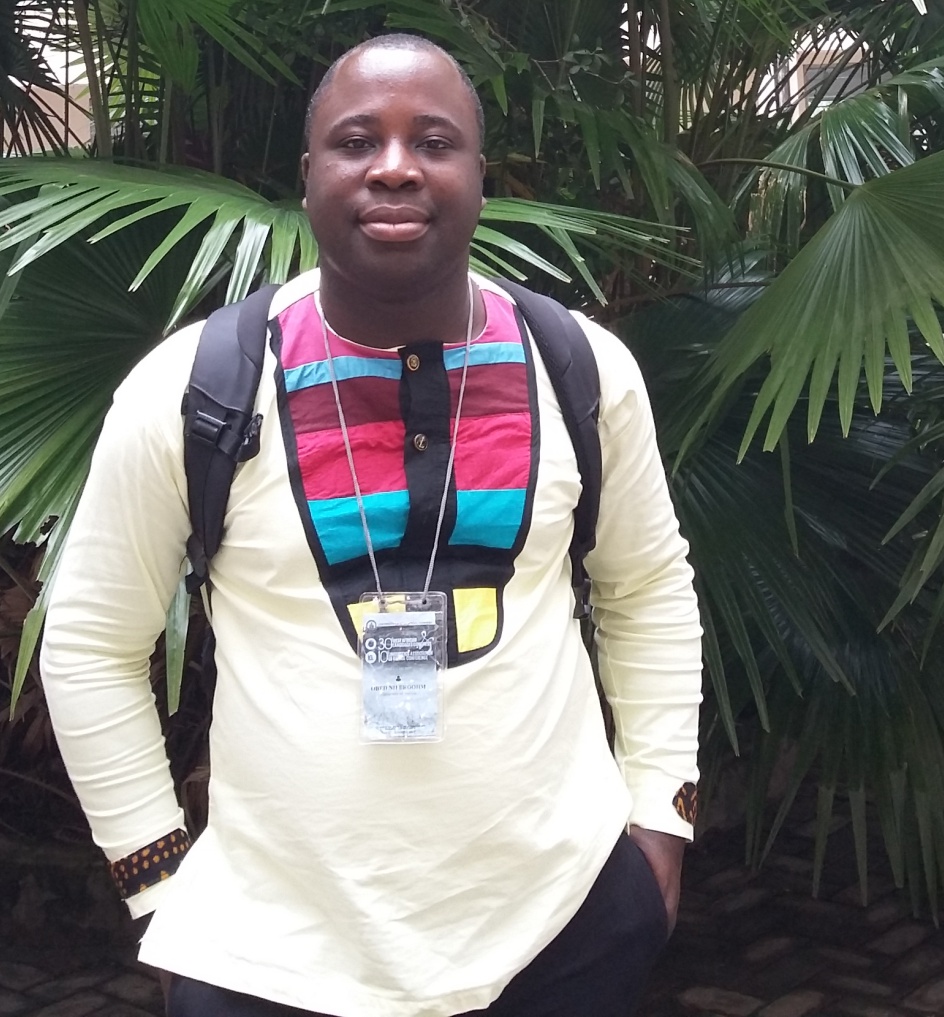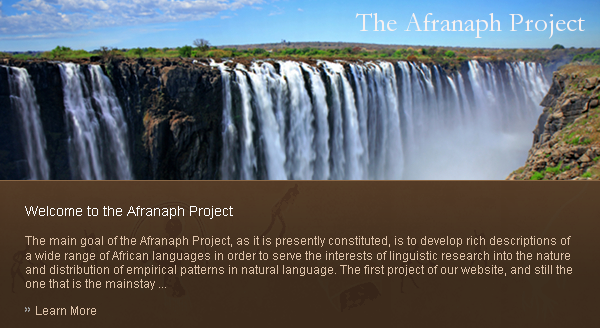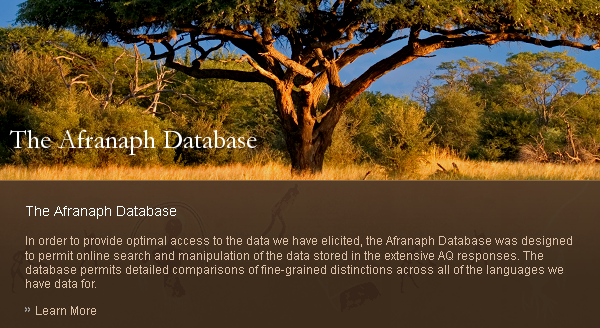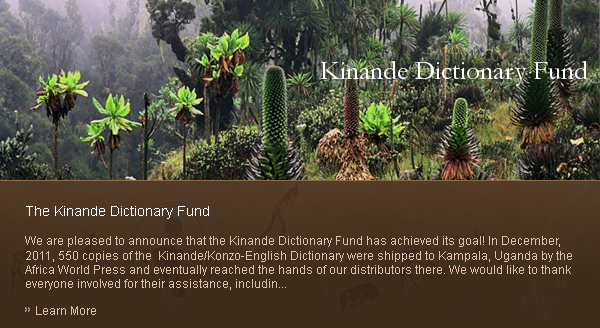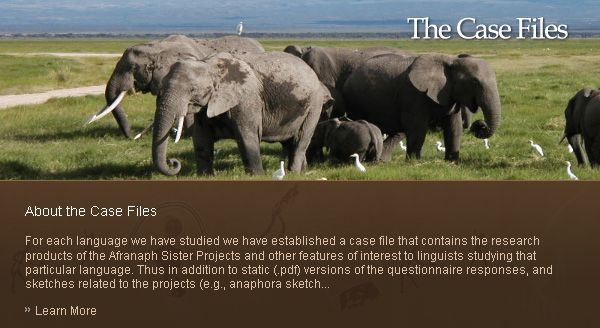Uncategorised
The Oromo Case File
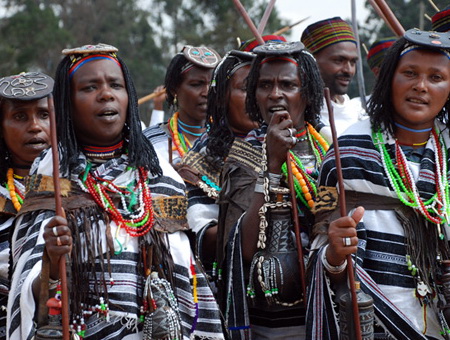
- DP Positions Questionnaire [pdf]
- Bibligraphy of work on Oromo [in progress]
©PhotoCredit: 101lasttribes.com
Oromo Case File Consultant
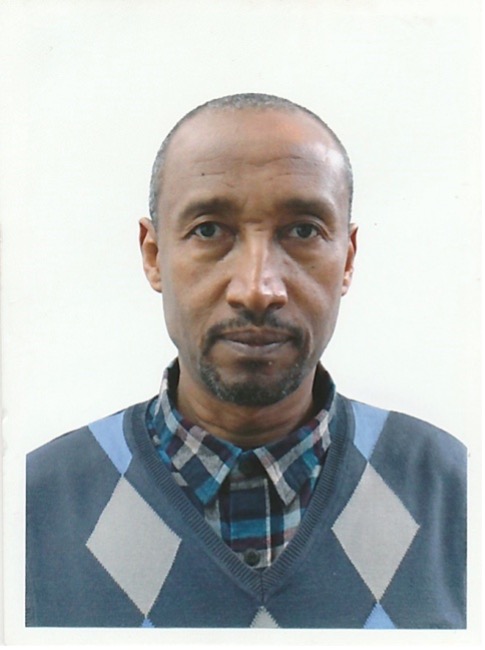
Tamam Ahmed Youssouf is a graduate student of linguistics at the University of Toronto, Canada. He worked extensively on Oromo orthography and standardization of the language. He wrote his Major Research Paper for his Master’s degree on “Issues in the Oromo Orthography” at York University also in Toronto Canada. His main interest is standardization of the Oromo language that has estimated speakers of over 30 million in Ethiopia alone. He has written a handbook of basic Oromo literacy in 1993, a guide on standardization of the Oromo language in 2008, an Oromo-Oromo dictionary with English equivalent, with Mr. Taha Abdi, in 2013 and is currently working on electronic bilingual dictionary. He has written articles on issues of the orthography, gender, copula and other topics of the Oromo language. He is a coordinator of the Caucus to Study and Preserve the Oromo language.
The Setswana Case File
- Complementation Clause Questionnaire [pdf]
Setswana Case File Consultant
Rose Letsholo is the case file consultant for this language. More information and photograph to follow shortly.
3rd Afranaph Project Development Workshop: Preliminary Program
All events in Intercultural Center Auditorium
| December 13 | |
| 9-9:30 | Introduction to Afranaph and State of the Project Ken Safir |
| 9:30-10 | Tense and Aspect in Akan (handout) Augustina Owusu |
| 10-10:30 | Tense-aspect Marking in Babanki (handout) Pius Akumbu |
| 10:30-11 | Coffee break |
| 11-12 | New Research Topic: The Syntax of Having (handout) Patricia Schneider-Zioga and Philip Ngessimo Mutaka |
| 12-1:30 | Lunch (not provided) |
| 1:30-2 | Anaphors in Urhobo (handout) Rose Aziza and Eseoghene Aleh |
| 2-2:30 | The Anaphora System in Ibibio (handout) Willie Udo Willie |
| 2:30-3 | Coffee Break |
| 3-3:30 | Evidence for polarity head: On the interaction of A'-movement and negation in Igbo (handout) Mary Amaechi |
| 3:30-4 | New Research Topic: In-depth investigation of modality in African languages (handout) Lydia Newkirk |
| 4:30-6 | Poster Session (Poulton 230) |
| December 14 | |
| 9-9:30 | Focus constructions in Akan Kofi Busia Abrefa |
| 9:30-10 | Complementizers and Interrogative Clauses in Avatime (handout) Blake Lehmann, Travis Major, and Harold Torrence |
| 10-10:30 | Valency decreasing derivations and middles in Limbum (handout) Francis Wepngong Ndi |
| 10:30-11 | Coffee break |
| 11-12 | New Research Topic: Actual Clauses Justine Sikuku, Joseph Wanyonyi, and Ken Safir |
| 12-1:30 | Lunch (Not provided) |
| 1:30-2 | A theory of (c)overt object pronouns in Kwa: Evidence from Gã (handout) Sampson Korsah |
| 2-2:30 | Contrasting (Doubled) Clitics & Agreement Affixes: A View from Tigrinya Pronominal Affixes Keffyalew Gebregziabher |
| 2:30-3:10 | Afranaph Sister Project Progress Report: Object Marking (handout) Michael Diercks, Justine Sikuku, Kang “Franco” Liu, and David Langa |
| 3:10-3:30 | Coffee Break |
| 3:30-4 | Possession and Nominalization in Dan: Evidence for a General Theory of Categories (handout) Mark Baker and Bleu Gondo |
| 4-4:30 | The distribution and function of "noun class" morphology in Shupamem (handout) Benjamin Macaulay and Hagay Schurr |
| 4:30-5:30 | New Research Topic: Agreement with Conjuncts (handout) Vicki Carstens |
| 5:30-6 | Afranaph Board Meeting (Open to all) |
| 7-10 | Banquet (Copley Formal Lounge) |
Poster Session:
Wh-movement in Ga
Hana Altalhi
Negation in Defoid Languages (handout)
Bolanle Arokoyo
Vowel hiatus at word boundaries and prosodic structure in Ikpana (handout)
Bertille Baron
Prosodic Alignment in Nobiin (handout)
Maya Barzilai
A new allophonic alternation in Lingala (handout)
Sarah Bellavance
Pre-verbal affixes in Kĩmwĩmbĩ (handout)
Ann Hildah Kinyua and Fridah Erastus
Two Deverbal Nominalization Structures in Ga
Lydia Felice
The interface between inflection and derivation in the Kinasukuma noun class system
Peji Lunyili
Investigation into causative constructions (handout)
Hazel Mitchley
Ergative case-marking and antipassive voice: a view from Grassfields Bantu (handout)
Hagay Schurr and Ben Macaulay
Morphologically conditioned vowel length in Ga (handout)
Katherine Russell
Extended projections and verb movement in Guebie imperatives
Ivy Wang
Regressive Low Tone Spreading in Ga
Luopeng Zheng
Sponsors
National Science Foundation
Department of Linguistics, Georgetown University
Office of Global Engagement, Georgetown University
Mortara Center for International Studies, Georgetown University
The Changana-Tsonga Case File
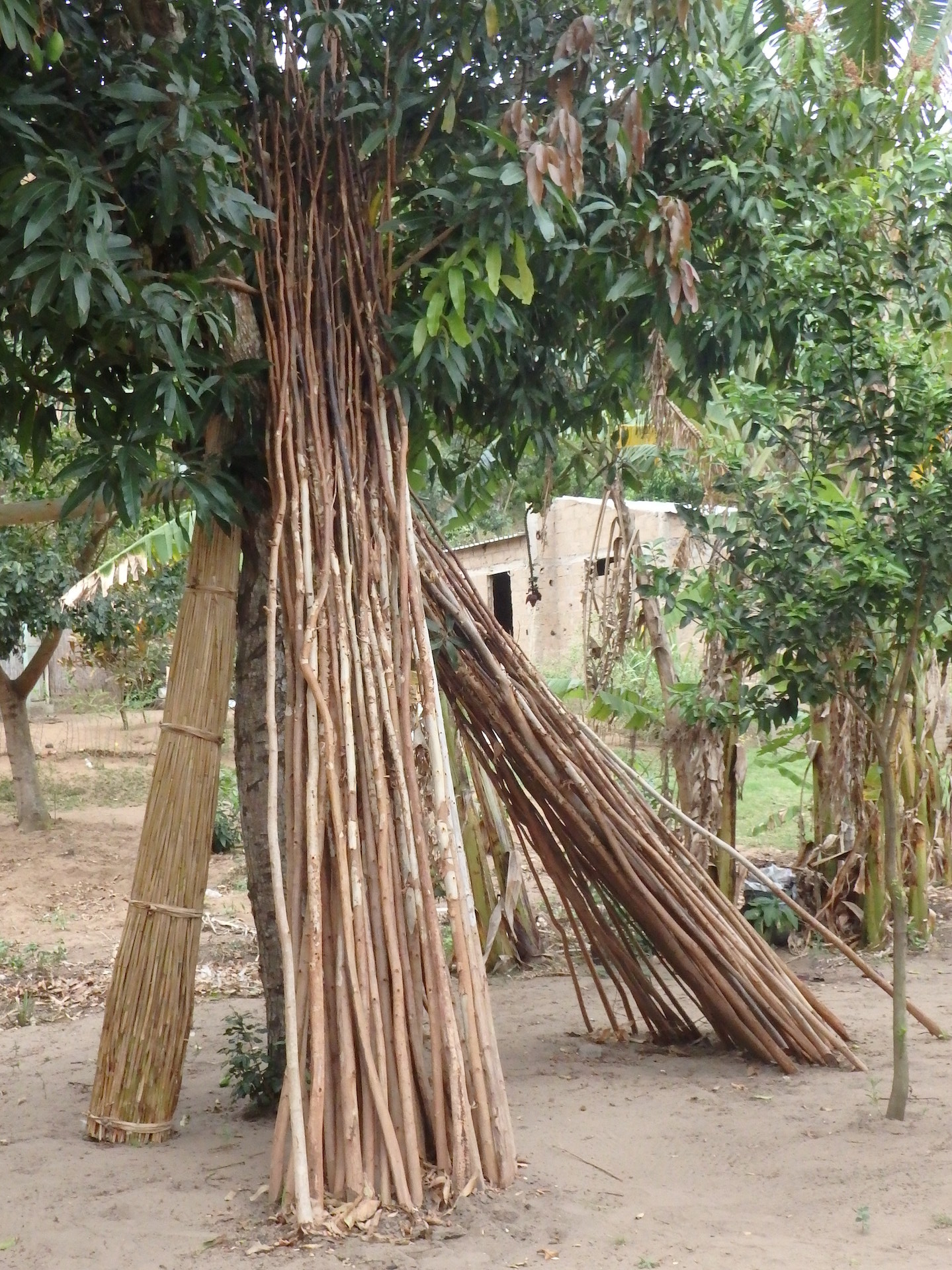 About This Case File: The CCQR is posted and the sentence data has been entered, but the analytic entities for the Clausal Complementation portal have not been entered. Additional extensive data on object-marking based on a questionnaire developed by Prof. Michael Diercks was collected by Prof. Diercks working with Prof. Langa. We hope to post that questionnaire response soon.
About This Case File: The CCQR is posted and the sentence data has been entered, but the analytic entities for the Clausal Complementation portal have not been entered. Additional extensive data on object-marking based on a questionnaire developed by Prof. Michael Diercks was collected by Prof. Diercks working with Prof. Langa. We hope to post that questionnaire response soon.- Complementation Clause Questionnaire [pdf]
- Bibligraphy of work on Changana-Tsonga (in progress)
(Last updated January 2021)
Changana-Tsonga Case File Consultant
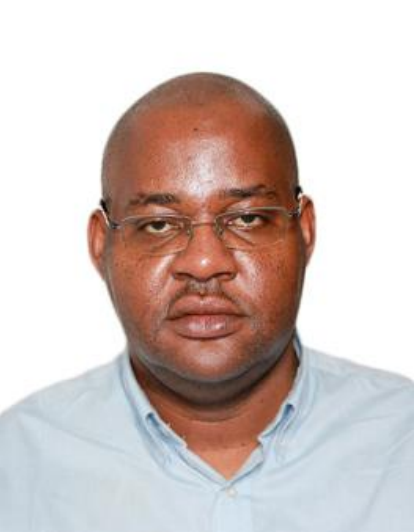
David Alberto Seth Langa is a Mozambican lecture and researcher of the Faculty of Art and Social Sciences (FLCS) at Eduardo Mondlane University (UEM). He is Ph.D in Linguistics from 2012. Their areas of research include Theoretical Descriptive Linguistics of Bantu Languages (African languages), Sociolinguistics and Ethnography of communication. As lecture, at the level of graduate and post graduate programs, he teaches the following subjects: Phonetics, Phonology, Morphology and Syntax of bantu languages. David Langa has been a supervisor of 20 monographs and jury of the same number of monographs. At post graduate level, he was supervisor of 5 dissertations of masters and the jury of 10 and also two jury of 2 PhD Thesis. He has been involved in various team of researchers which results in national and international publications. He presented 20 papers and published around 20 articles and chapters of the book. He published 1 book and co-author of around 20 mini-dictionaries of Mozambican languages, namely: Changana, Chuwabo, Copi, Lomwe, Makhuwa, Makonde, Mwani, Ndau, Nyanja, Nyungwe, Rhonga, Sena, Tewe, Tonga, Tshwa and Yaawo. He also published 2 school books of grade 2 Maths for bilingual education.
David Alberto Seth Langa é docente e investigador moçambicano afecto na Faculdade de Letras e Ciências Sociais (FLCS) da Universidade Eduardo Mondlane (UEM), Doutorado em Linguística desde 2012. As suas áreas de actuação incluem a Linguística Teórico-Descritiva das Línguas Bantu (línguas africanas do grupo bantu), Sociolinguística e Etnografia da Comunicação. A docência, a nível de graduação e pós-graduação, inclui matéria da sua área de formação de base, a saber: Fonética, Fonologia, Morfologia e Sintaxe das línguas bantu. Foi supervisor de cerca de 20 monografias de graduação e arguente de igual número de monografias. Na após graduação, foi supervisor de 5 e arguente de cerca de 10 Dissertações de Mestrado e arguente de duas teses de Doutoramento. Participa em várias equipas de investigação cujo resultado aparece publicado em revistas de especialidade nacional e internacional. Apresentou cerca de 20 comunicações a nível nacional e internacional e publicou igual número de artigos e capítulos de livro. Publicou um livro e co-autor de cerca de 20 mini dicionários das línguas moçambicanas, a saber: Changana, Chuwabo, Copi, Lomwe, Makhuwa, Makonde, Mwani, Ndau, Nyanja, Nyungwe, Rhonga, Sena, Tewe, Tonga, Tshwa e Yaawo. É também co-autor de 2 livros de Matemática para segundo ano de escolaridade do programa de ensino bilingue.
(Last updated August 2023)
Esahie Case File Consultant
Obed Nii Broohm is currently a Ph.D. student at the University of Verona, Italy. His interest lies mainly in the morpho-syntax of Kwa languages, with special emphasis on Esahie (Sehwi). His MA thesis from the University of Ghana (2014) wason Information Structure in Esahie. His Ph.D. research titled “Issues in Esahie Nominal Morpho-Syntax: From Inflection to Word Formation" is dedicated to the exploration of the nominal domain of Esahie.
.